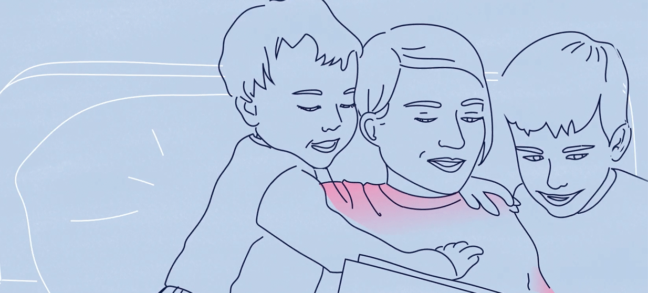Axogen Corporation
Most women opt to have breast reconstruction after mastectomy. Through a type of surgery known as autologous (free flap) breast reconstruction, plastic surgeons can rebuild a new breast using a woman’s own tissue, typically taken from the abdomen or elsewhere on the body.
But breast reconstruction, at least the way it’s typically performed by most plastic surgeons today, has some limitations. During mastectomy, surgeons have to sever the nerves responsible for providing sensation to the breast. While breast reconstruction can restore what are known as the four “S’s” – size, shape, softness and symmetry – the damage to the nerves from the mastectomy means that even the reconstructed breasts are often permanently numb. This is true for standard mastectomies as well as nipple-sparing mastectomies,1 in which the breast skin, nipple and areola are retained.
To offer women the opportunity to potentially restore sensation to the breasts after mastectomy, Axogen (AXGN), a global leader in peripheral nerve injury repair, has introduced a new technique, Resensation®. Through Resensation, a select group of plastic surgeons, who are experienced in breast reconstruction surgery and microsurgery, connect nerves in the chest wall with nerves in the new breast using allograft nerve tissue. The processed allograft provides the essential structure to encourage nerve regrowth in the breasts of women who undergo reconstruction.
Ivica Ducic, MD, PhD, a plastic surgeon who is known internationally for his expertise in peripheral nerve surgery, says that Resensation has the potential to dramatically change what women can expect after a mastectomy.
“I really believe this will become standard practice in the future,” said Dr. Ducic, Axogen Medical Director.
Dr. Ducic shared his thoughts on Resensation’s potential to restore sensation to the breasts of women after reconstruction – and how doing so potentially will transform outcomes for women in their recovery from mastectomy.
After a mastectomy, what degree of sensation loss do women typically experience?
Depending on the type of mastectomy and the number of sensory nerves being removed with breast tissue, varying degrees of numbness can be present. This can range from nipple-areola numbness, chest/breast skin numbness or both.
There will also be variation in how much sensation is retained even within the different types of mastectomy. So, for example, one person who undergoes nipple-sparing mastectomy may have more or less sensation than another person.
How much attention have the majority of plastic surgeons who perform breast reconstruction traditionally given the loss of sensation?
Likely minimal to none.
Why do you think that is?
The entire focus has been on restoring the appearance of the breasts. Plastic surgeons can achieve great cosmetic results as far as size, shape, softness and symmetry. At plastic surgery conferences, you’ll hear plastic surgeons say that after reconstruction women can look even better than before they had cancer.
But no one was really asking women about how the breasts feel to them, or the connection that sensation has to their quality of life. Traditionally, the sensation component has been ignored.

How significant do you believe restoring sensation will be to women’s quality of life after mastectomy?
I believe restoring sensation in a woman’s breasts will have an incredible impact on her life. Being diagnosed with cancer and having a mastectomy is traumatic for many women. Every loss that a woman has after the surgery, including the lack of sensation, can be a post-traumatic stress stimulus. The more you can bring a patient back to normal, the potentially healthier they will be, physically and psychologically. I have seen this in many of my own patients.
Axogen is also gathering data on patient outcomes through a national clinical registry, Sensation-NOW™ (Sensation Neurotization Outcomes for Women). The Sensation-NOW registry will study the physical and quality of life outcomes of breast neurotization, the medical term for repairing nerves to restore sensation.
If women want the option of Resensation, what type of reconstruction should they choose?
Resensation is possible with both autologous, or free flap reconstruction, and implant-based breast reconstruction.
Autologous flap reconstruction uses the woman’s own tissue to reconstruct the breast or breasts. There are several types of autologous reconstruction. The most common is the DIEP flap, in which tissue, including fat and skin, are taken from the abdomen.
Women may have to seek out plastic surgeons who perform autologous flap reconstruction. About 80% of women who have reconstruction still get implant reconstruction, while only 20% have autologous reconstruction.2 Breast implant surgery is typically less expensive than autologous flap, and more surgeons are familiar with breast implants than autologous flap reconstructions.3 So women may not even be offered the autologous reconstruction as an option.
Women will mostly likely need to narrow their search further to find a surgeon who offers Resensation. Axogen is committed to making sure Resensation is made available in wide geographic areas so that it’s accessible to women from across the United States, but this process takes time.
Considering breast implants have the risk of rupturing, infection or contraction over time, potentially requiring additional surgeries, many women opt to have breast reconstruction with their own tissue. The interest for autologous breast reconstruction is expected to get even bigger, as women start to appreciate the benefits of restoration of breast sensation with simultaneous nerve and flap breast reconstruction.
Should women ask their breast surgeon about adding Resensation to their breast reconstruction treatment plan?
Yes. They should consult with their surgeon about the restoration of sensation. If the surgeon denies that it’s important or dismisses the idea, they should seek someone who offers breast reconstruction with Resensation. It’s going to be women’s voices that change the conversation with their plastic surgeons on the opportunity to restore sensation.
A few decades ago, if you were a woman who had breast cancer and wanted to get reconstruction, the procedure was probably going to be denied by insurance companies as an unnecessary procedure. The passage of the Woman’s Health and Cancer Rights Act in 1998 required most insurance plans to cover reconstruction. Today, women who have had breast cancer are entitled to reconstruction.
But even today reconstruction has been limited to size, shape, softness and symmetry. The focus has been on cosmetic or aesthetic outcomes. I believe reconstruction should be expanded to include restoring sensation.
About Ivica Ducic, MD, PhD
Dr. Ducic is a renowned plastic surgeon and expert in peripheral nerve surgery. After receiving his medical degree and PhD in neuroscience from University of Zagreb School of Medicine in Croatia, Dr. Ducic completed a residency in plastic surgery at Georgetown University and a fellowship in peripheral nerve surgery at the Institute for Peripheral Nerve Surgery in Baltimore. He went on to become a professor of plastic surgery and neurosurgery and founder of the Peripheral Nerve Surgery Institute at Georgetown University Hospital.
In 2014, Dr. Ducic started his own practice, the Washington Nerve Institute in McLean, Virginia. He has published over 90 peer-reviewed studies and served as an editor for numerous peripheral nerve-focused research. He is the past president of American Society for Peripheral Nerve.
_________________________
1https://www.facs.org/media/press-releases/2017/mastectomy071717
2https://www.plasticsurgery.org/documents/News/Statistics/2017/reconstructive-breast-procedures-age-2017.pdf
3https://www.ncbi.nlm.nih.gov/pubmed/25517411
Resensation Blog

sensory retraining: what is it, and how can it help me after resensation®?
Sensory retraining is a series of exercises designed to help you reconnect with your body after breast reconstruction with Resensation®.
Read More
Breast self-exams: why, when and how
A breast self-exam is a useful tool for the early detection of breast cancer.
Read More
Resensation® patient uses her platform for change
With a family history of breast cancer, Bri opted to undergo a prophylactic mastectomy, followed by immediate breast reconstruction with…
Read More
a patient’s guide to the resensation® surgical technique
A breast cancer or BRCA diagnosis can make it feel like you’ve lost control over your health. Decisions need to…
Read More